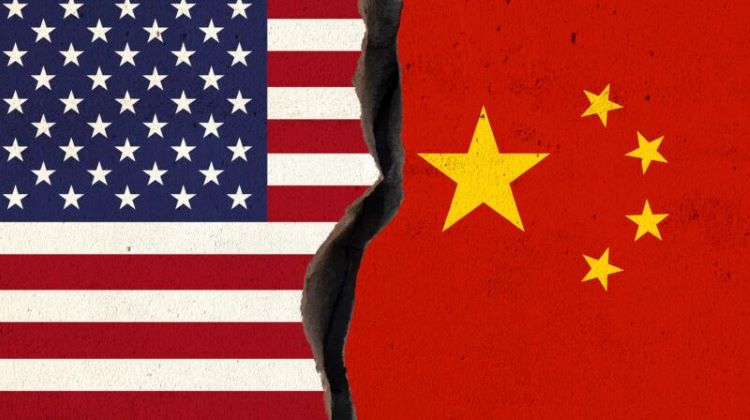Anamika Dey, editor
Synopsis
- China is willing to address U.S. concerns about illicit fentanyl trade but warns that further U.S. tariffs could complicate cooperation efforts.
- The U.S. has increased tariffs on Chinese goods due to China’s alleged role in the fentanyl crisis, despite China’s measures to restrict fentanyl precursor exports.
- China’s countermeasures against U.S. tariffs are deemed legitimate, and while tariffs may impact China’s GDP growth, the economy is still expected to grow moderately in the coming years.
Detailed
BEIJING: China is willing to do more to address White House concerns about illicit fentanyl trade, but it will be “a different thing” if ongoing debate over the drug facilitates more U.S. tariffs on the world’s second largest economy, an official from the Chinese Ministry of Foreign Affairs told reporters Wednesday.
According to the official, who spoke through an official English translation, the United States government ought to have “said a big thank you” to China for the measures it has taken to restrict the trafficking of fentanyl in the United States. The person stated that the White House did not appreciate the effort and instead increased levies on Chinese imports twice this year due to the substance.
Since taking office in January, U.S. President Donald Trump has boosted tariffs on Chinese imports by 20% on the basis of the country’s claimed complicity in the U.S. fentanyl epidemic. The addictive substance, the precursors to which are primarily produced in China and Mexico, is responsible for tens of thousands of deaths in the United States that occur as a result of overdoses each year.
Despite a request for comment from CNBC, the White House did not immediately react to the inquiry.
Over the course of the past few years, the Chinese government has been making steps to reduce the manufacturing and export of fentanyl precursors. These efforts were discussed in a white paper that was issued earlier this month. There was a question that was asked about whether China would discontinue its recent measures to prohibit such commerce, but the official did not explicitly react to the query.
While the United States and China were under the administration of Vice President Joe Biden, they had stated that fentanyl was one of the few areas in which they could work together. On the subject, both parties participated in in-depth discussions in Beijing the previous year.
In the beginning of this year, President Trump provided an indication that he could possibly use tariffs as a means of exerting pressure on China to compel Beijing-based ByteDance to sell TikTok. TikTok is currently facing a deadline in early April to continue to be available in the United States.
In his first term as president, Trump had placed a strong emphasis on tariffs as a means of reducing the trade deficit that the United States had with China. A “Phase One” trade deal was reached between the two countries just prior to the outbreak of the COVID-19 pandemic. This agreement mandated that Beijing boost the amount of goods it purchases from the United States. According to data from the United States, the trade deficit with China decreased to $295.4 billion in 2024, down from $346.83 billion in 2016, which was just prior to the beginning of Trump’s administrative term.
But disputes on trade have lingered since the January start of the White House leader’s second mandate. According to projections provided by Ting Lu, Chief China Economist at Nomura, the average effective tariff rate set by the United States on Chinese exports is now expected to reach 33%. This represents an increase from approximately 13% prior to the beginning of Trump’s most recent term.
Beijing has replied to the most recent tariffs imposed by the United States by imposing targeted taxes on products related to energy and agriculture, while simultaneously tightening restrictions on the sale of essential minerals that the United States need. Not only that, but the Chinese Ministry of Commerce has added a number of American companies, most of whom are involved in the aerospace or defense industries, to lists that restrict their ability to conduct business with China.
In a statement released on Wednesday, an official from the Ministry of Foreign Affairs stated that China’s countermeasures were “legitimate actions” to preserve the country’s own interests.
According to calculations provided by Allianz, the additional twenty percent tariffs imposed by the United States on Chinese exports would have a negative impact on the growth of China’s gross domestic product (GDP) both this year and the next year. On the other hand, the company continues to anticipate that the Chinese economy will expand by 4.6% this year and 4.2% in 2026. This forecast is based on the assumption that the impact of tariffs may be mitigated by stimulus.
In an interview with CNBC that took place a week ago, Francoise Huang, senior economist for Asia-Pacific and global trade at Allianz Trade, stated, “I would tend to say the retaliation is not so strong, possibly leaving room for negotiations.”
Source : CNBC news




